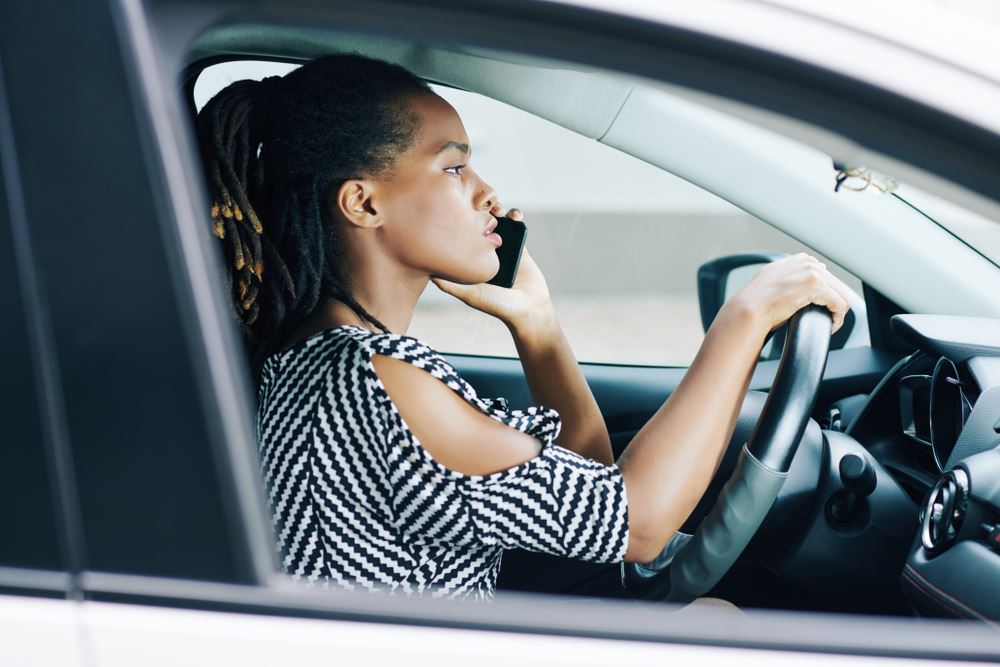Texting and driving, and distracted driving in general, poses a huge risk to everyone on the road, yet drivers of all ages continue to do it. At Pearson Butler, we have seen how serious distracting driving accidents can be, which is why we are proud to honor Distracted Driving Awareness Month this April to tackle these issues. We firmly believe that through education, awareness, and practicing safe driving, numerous accidents can be prevented every year.
Why Is Texting and Driving Dangerous?
The National Safety Council (NSC) estimated that no less than 28% of all traffic accidents, about 1.6 million crashes annually, are caused by drivers who text or use their cell phones in some capacity. While many drivers may think that they are the exception, the truth is, texting and driving is dangerous no matter how great a person is at texting or multitasking. Remember, per the National Highway Traffic Safety Administration (NHTSA), at 55 miles per hour, it only takes 5 seconds, the average time it takes to type and send a text, to drive the length of a football field.
How Common Is Distracted Driving?
Distracted driving is very common in Utah and throughout the United States, particularly among older teen drivers. Per the Centers for Disease Control and Prevention(CDC), 60% of teens aged 18 and 19 reported having texted and/or emailed while driving at least once in the 30 days prior to the 2019 survey -- and texting and emailing are only two of the many driver distractions.
In studying fatal crashes, the CDC found that drivers between the ages of 15 and 19 are more likely to drive while distracted than are other age groups. The CDC also reported that 25% of all distracted drivers involved in fatal accidents are between the ages of 20 and 29. Therefore, it comes as no surprise that teens and young adults are often considered the most at-risk group for distracted driving.
Other Types of Driver Distraction
As mentioned, distracted driving is not limited to cell phone use. Per the CDC, anything that takes your eyes or mind off driving, as well as a hand off the steering wheel, is considered a driver distraction. Thus, eating, reaching for items, drinking coffee or other non-alcoholic beverages, grooming, and using an “infotainment” system on your dash while driving are all forms of distracted driving.
How to Prevent Distracted Driving
To reduce your risk of distracted driving, make a conscious effort to not use your phone or multitask while on the road. Often, a good way to do this is to plan ahead, such as by reviewing the directions to your destination, adjusting your AC and/or heater, and programming your radio or choosing a playlist before you start driving.
Other simple distracted driving prevention tips include:
- Silence and put away your cell phone
- Don’t eat behind the wheel
- Pull over if you start to feel drowsy
- Take care of personal grooming before you get in the car
- Listen to music at a volume that allows you to hear outside sounds
Utah Distracted Driving Laws
To date, Utah state laws on distracted driving include the following:
- Drivers are prohibited from typing on electronic devices while driving, which includes texting, dialing a phone number, and accessing the internet;
- Drivers under the age of 18 are barred from hands-free cell phone use, although hands-free technology remains legal for everyone 18 and over; and
- Under Utah’s “careless driving” law, drivers of all ages can be penalized for general handheld cell phone use, not only texting or calling.
Please note: While the state’s distracted driving laws are limited to the use of electronic devices, this does not mean that other types of distracted driving are safe.
Fighting Against Distracted Driving Year-Round
A full-service Utah firm, Pearson Butler has a team of qualified personal injury lawyers who are passionate about representing car accident victims. If a distracted driver caused the accident in which you were injured, we want to help you recover your full compensation for any damages accumulated as a result.
Call (800) 265-2314 or fill out an online form to get in touch with a Pearson Butler attorney.



.jpg)
-min.jpg)
![Evidence to Collect After a Car Accident [INFOGRAPHIC] Photo](/cms/thumbnails/34/480x240//images/blog/iStock-456512005.1)-min.jpg)